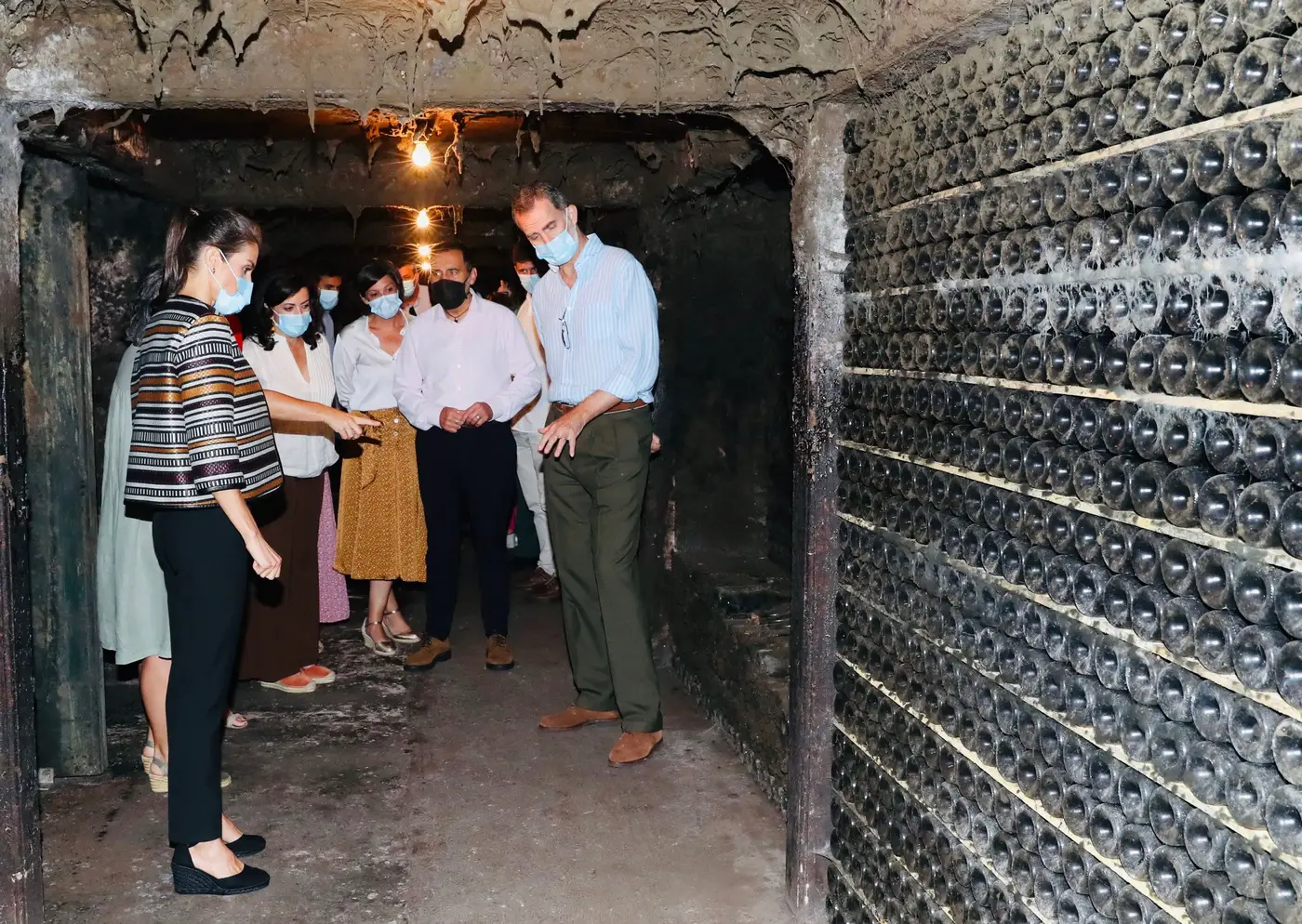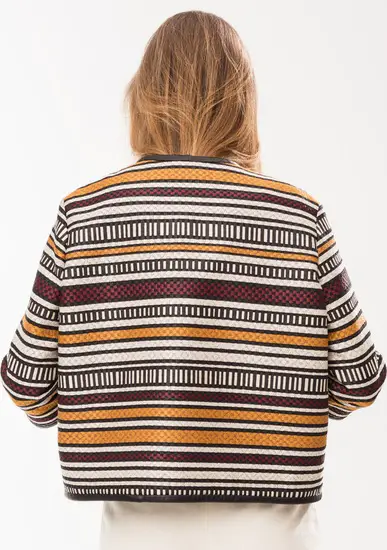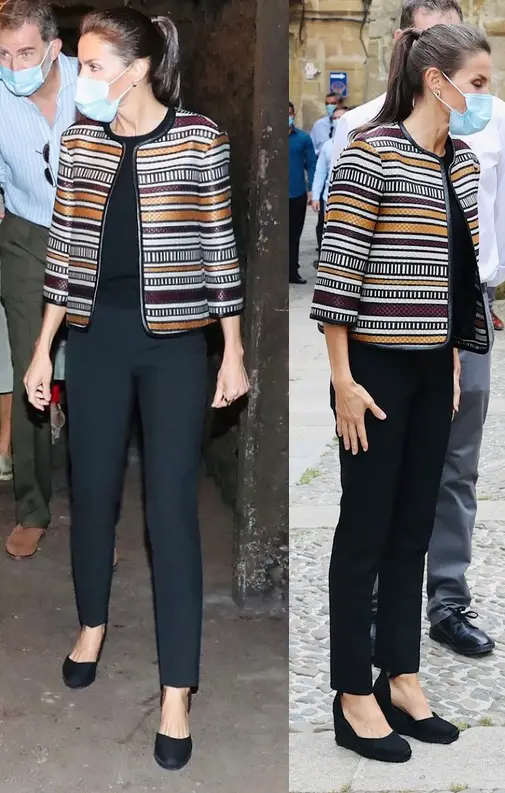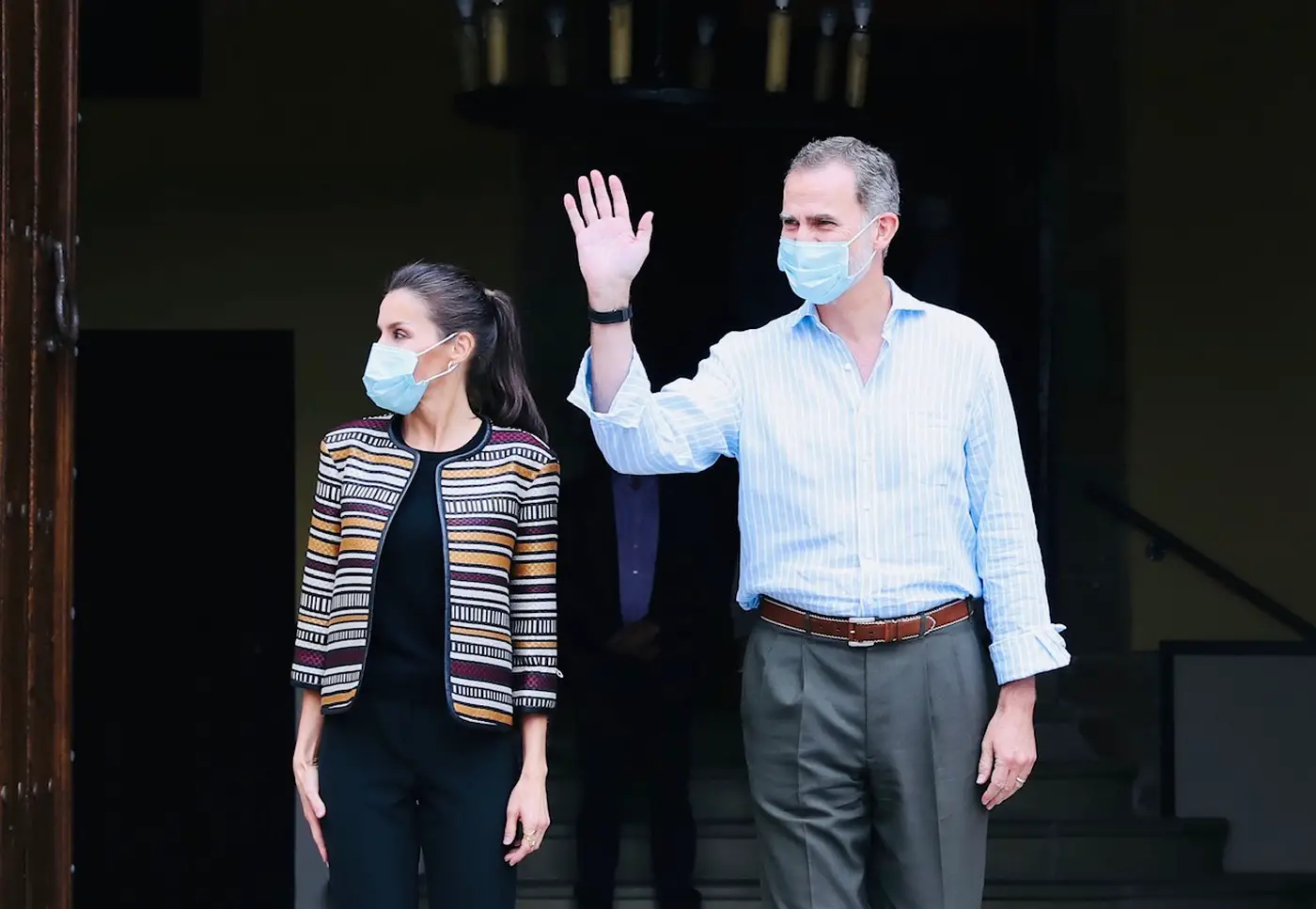
Today, King Felipe and Queen Letizia of Spain visited the autonomous community of La Rioja where they visited the oldest winery in the town in Haro, met with a representative of the wine sector and travelled part of the Camino de Santiago that runs along the main street of Santo Domingo de la Calzada to see the Cathedral and the pilgrim’s hostel.
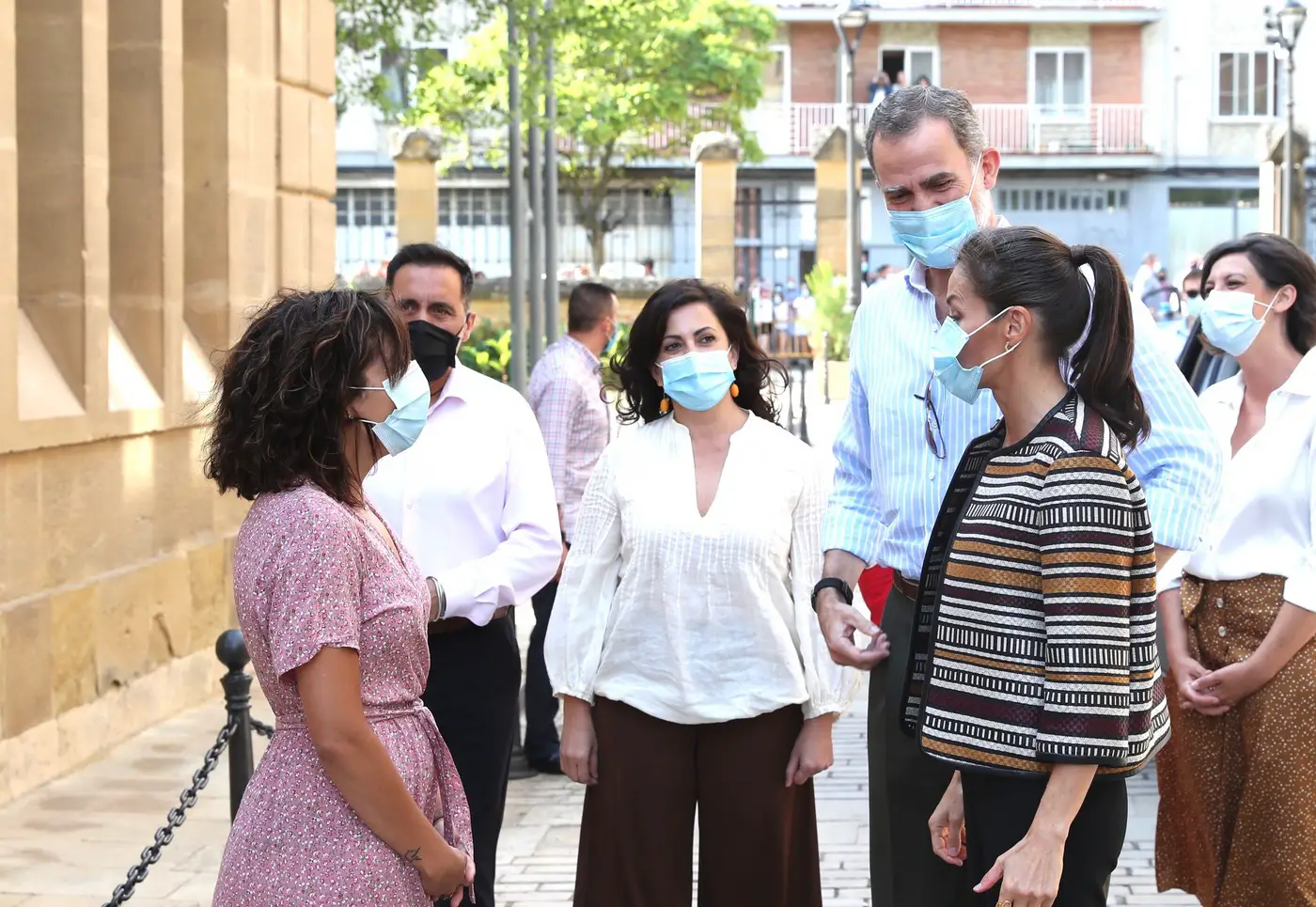
As part of Couple’s nation-wide tour to promote tourism to recover the COVID-19 affected economy, this was Felipe and Letizia’s 8th stop. Since the launch of “Spain for Sure” campaign in June, The King and Queen had travelled to Gran Canaria Island, Mallorca in Balearic Island, Seville, Cuenca, Benidorm and Valencia, Cieza and Murcia, and the Community of Aragon.
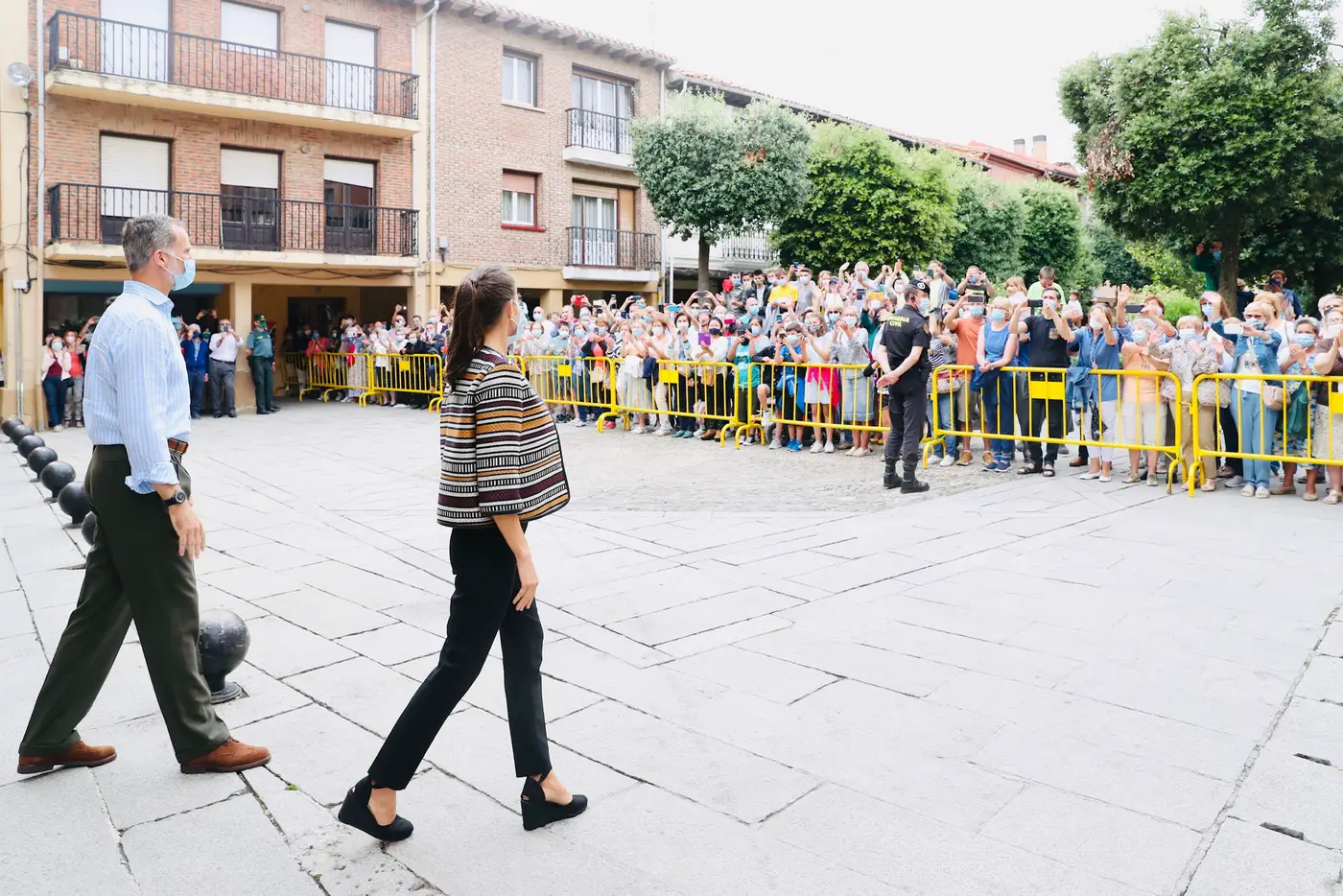
Rioja is a magical region that sits alongside the great Ebro River and is boarded by the Cantabrian Mountains. World-renowned for its winemaking, the heart of Rioja sits in the town of Haro. There, in the historic city, sits one of the most important areas in the world of wine: The Haro Station District.
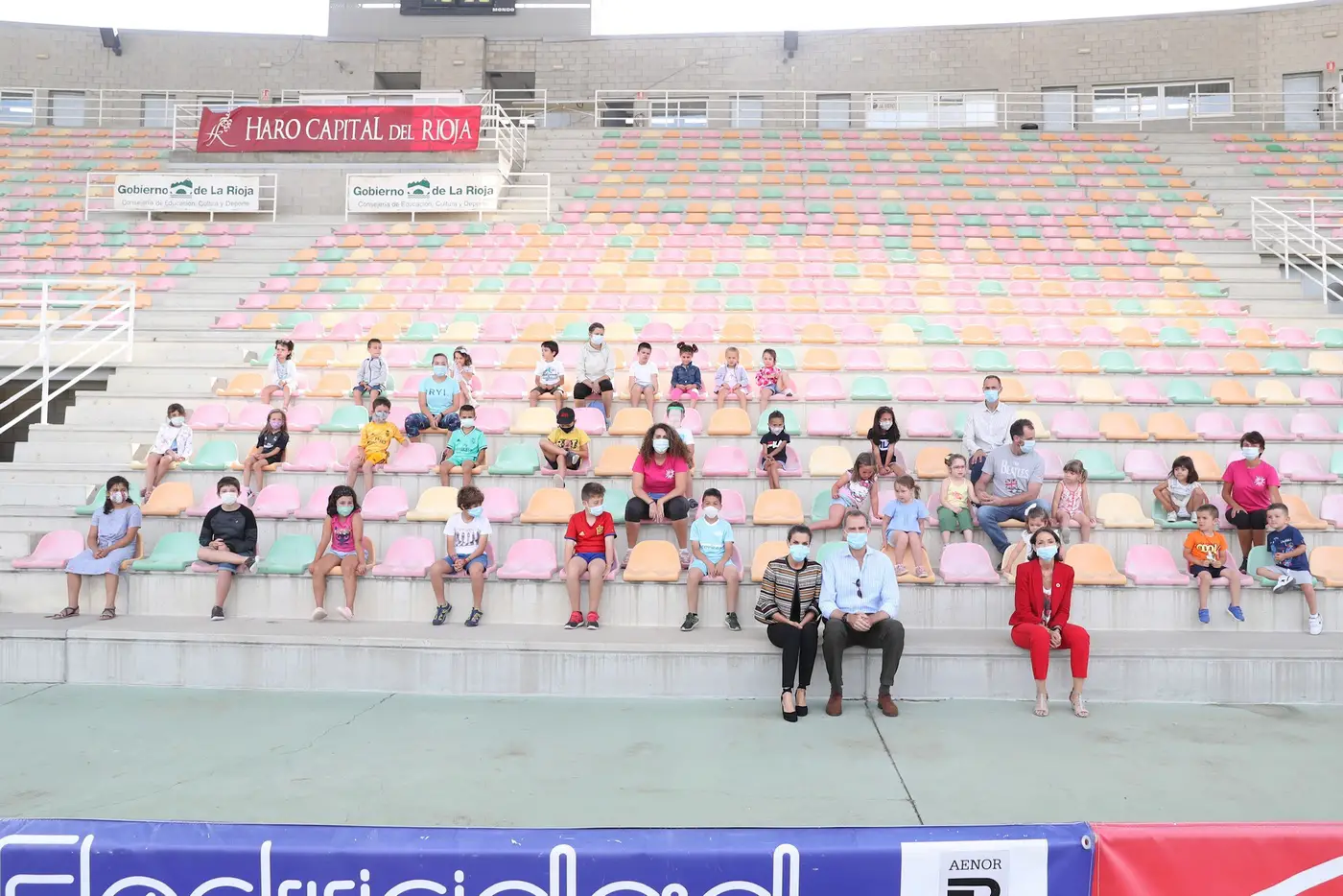
Upon arrival, King Felipe and Queen Letizia of Spain were welcomed by a group of cute young kids who waited from them in the Haro stadium.
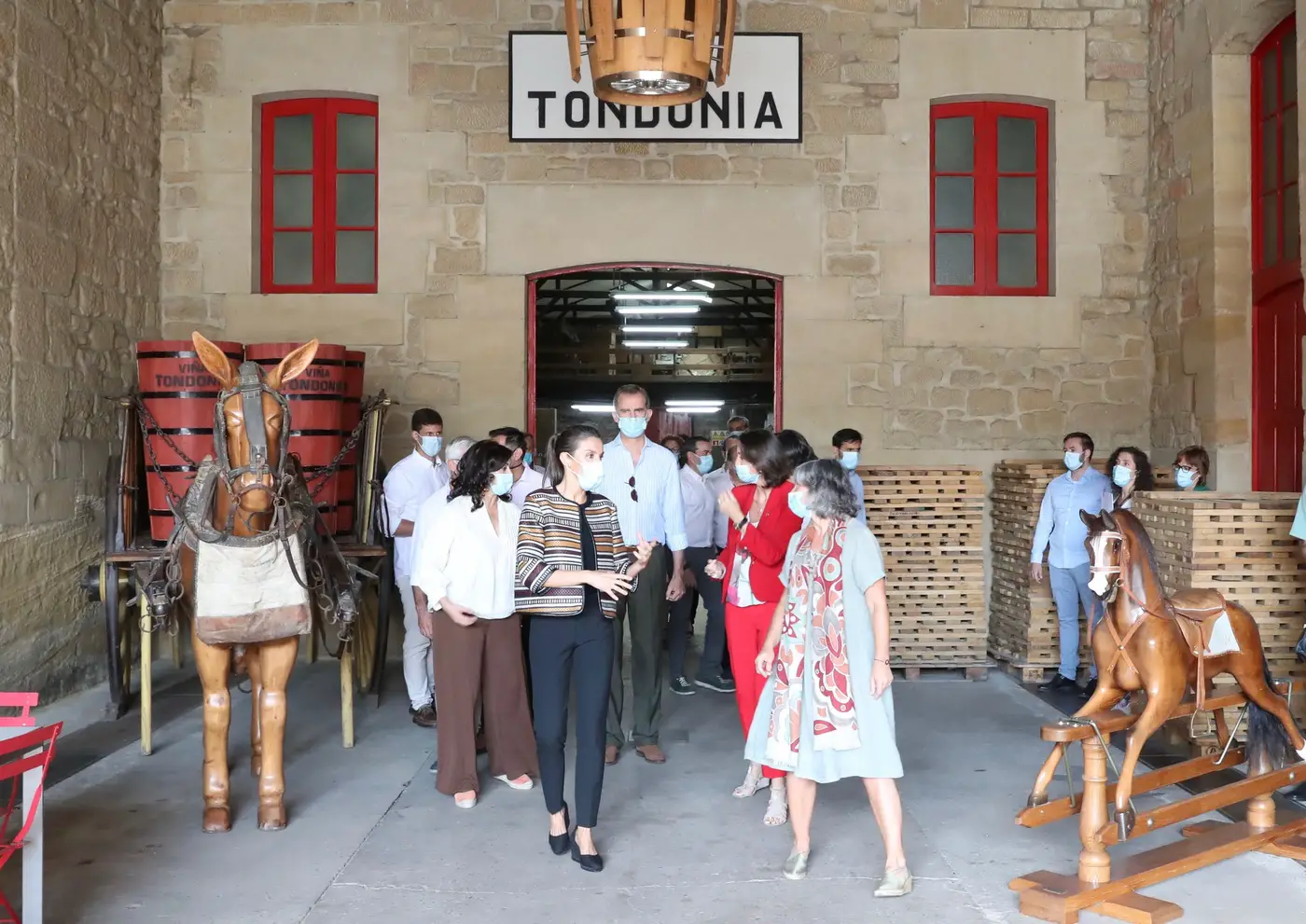
The day began at the oldest winery of the town – the Haro Wine Station. Featuring State-of-art technology the wine station is a government distillery. Elena Meléndez, director of the La Rioja Wine Station and Interpretation Center explained the operation of the centre and of the Quality Control and Instrumental Analysis and Magnetic Resonance of the laboratories.
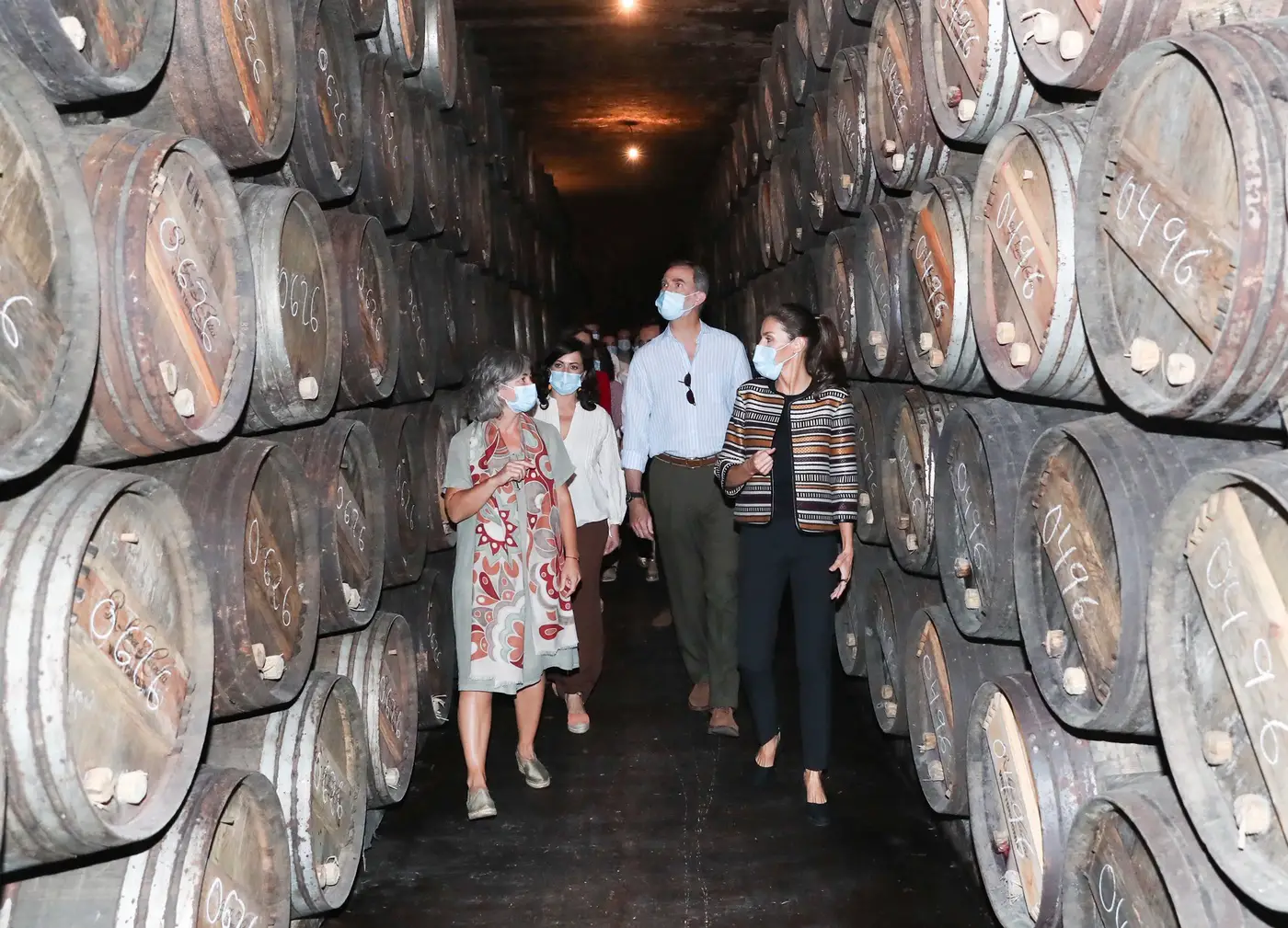
Haro was one of the first cities in Spain to have the modern, new technology of the railway come directly from France. While winemaking had been prevalent throughout Spain, it was in the 1860s that several wineries set up near the railway station in Haro and the wine business brought great wealth to the area.
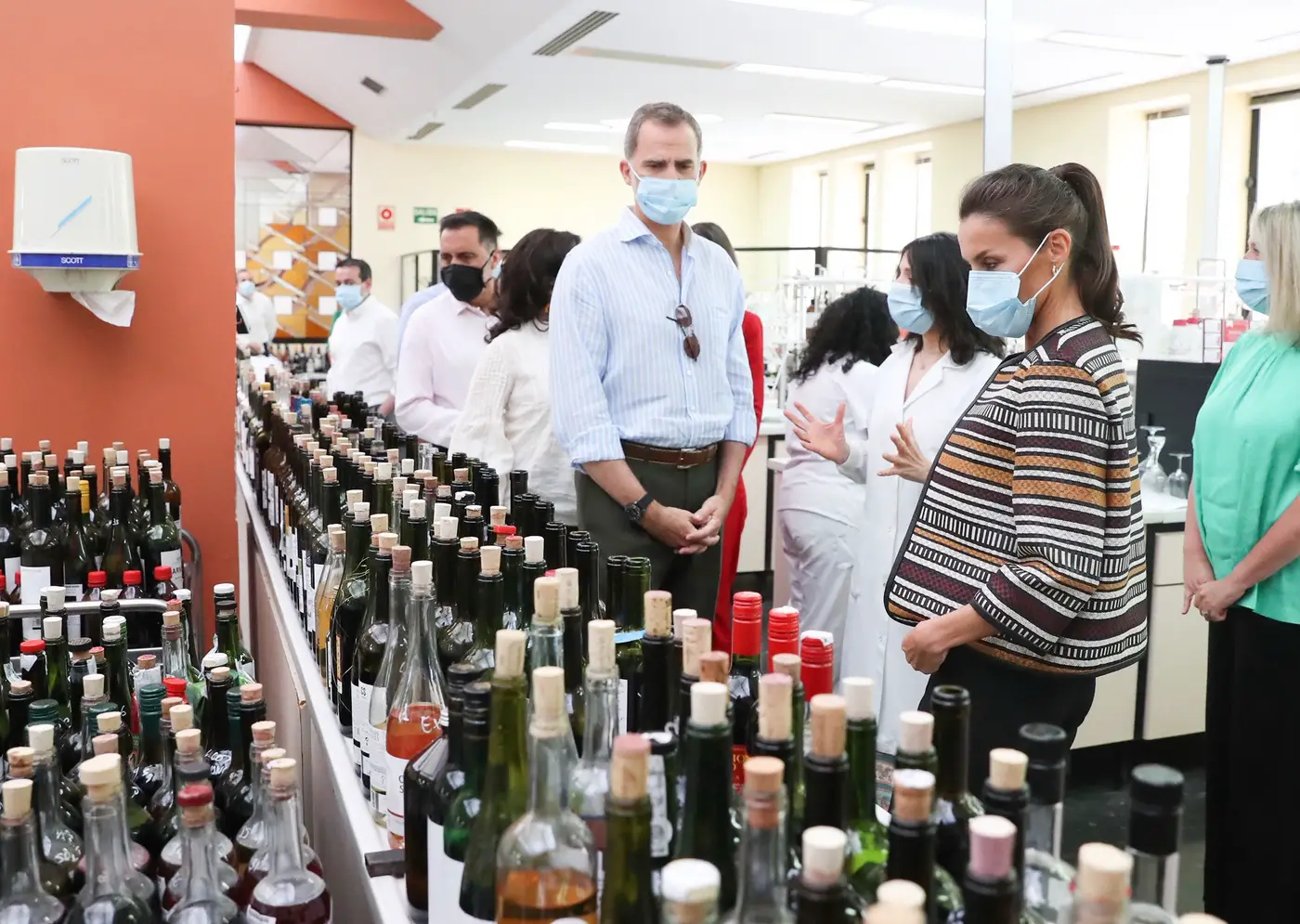
The Haro Wine Station completed 125 years in 2017 maintaining the spirit with which it was created in 1892, the result of a need to expand into new markets and the urgency of updating Rioja winemakers on new methods of winemaking.
Today, the Haro Station District is comprised of seven wineries of different ages, sizes and styles, all creating incredible wines that represent the Haro landscape. Each winery has found its own philosophy and character in the wine created, attracting thousands of oenophiles from around the world.
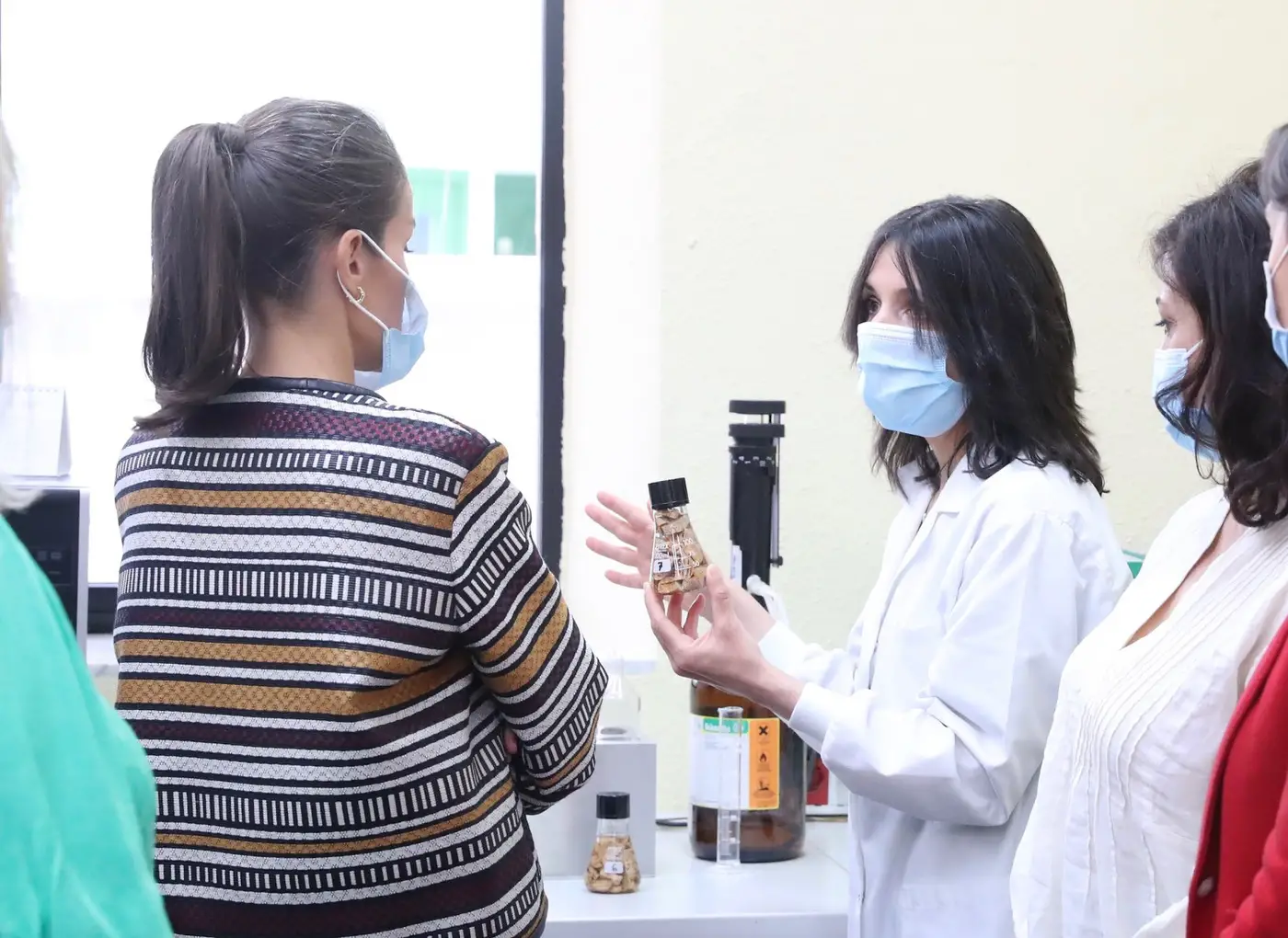
King and Queen receiving a brief explanation of the distillery process.
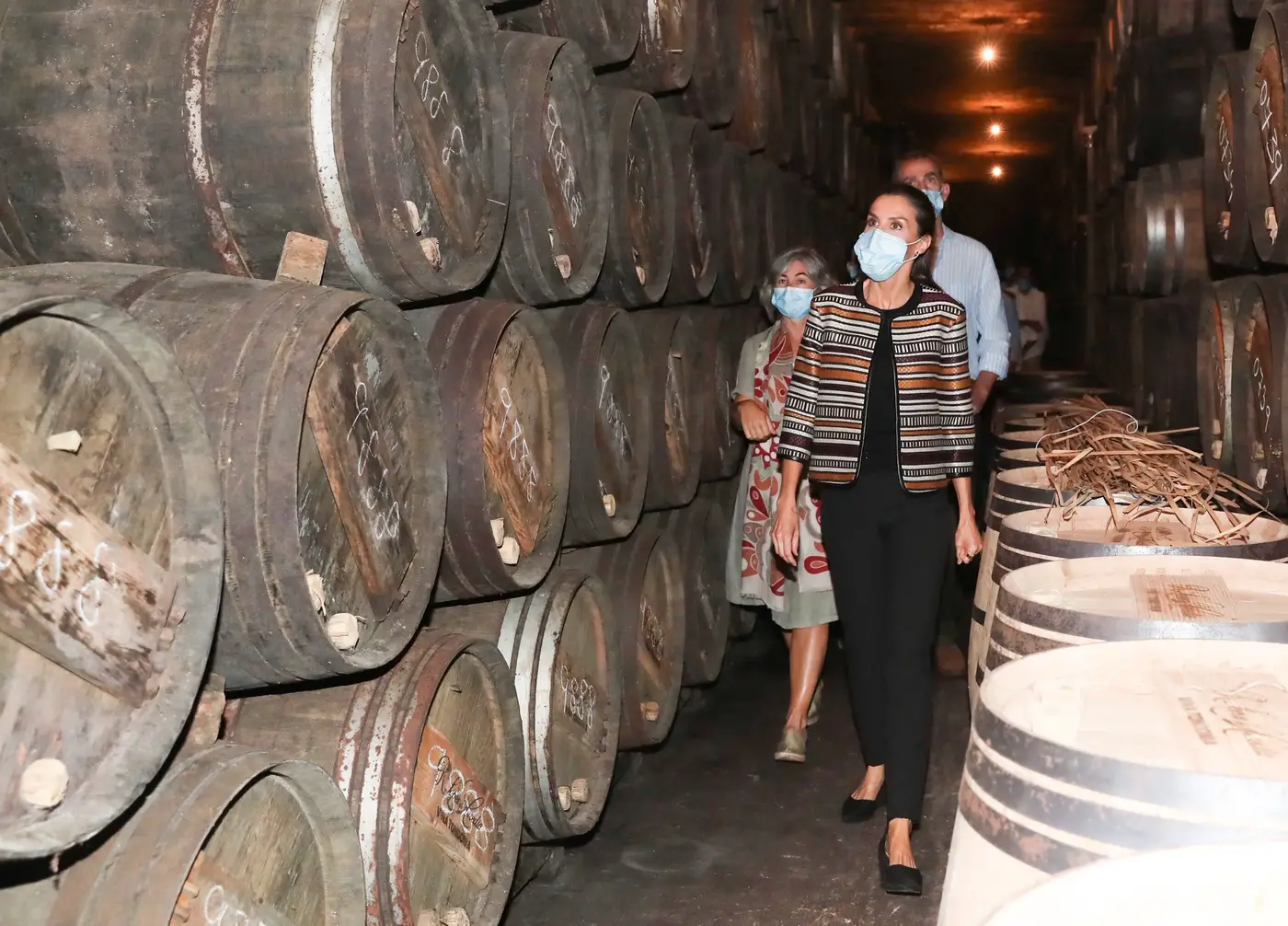
The Station was the first Winemaking Station in Spain to obtain accreditation by ENAC in accordance with the International Standard EN 45001 for the vast majority of the parameters analyzed in October 1999. Felipe and Letizia toured the wine station and its facility during the visit. Although Queen Letizia does not drink, she was very much interested in the process of winemaking and asked many questions.
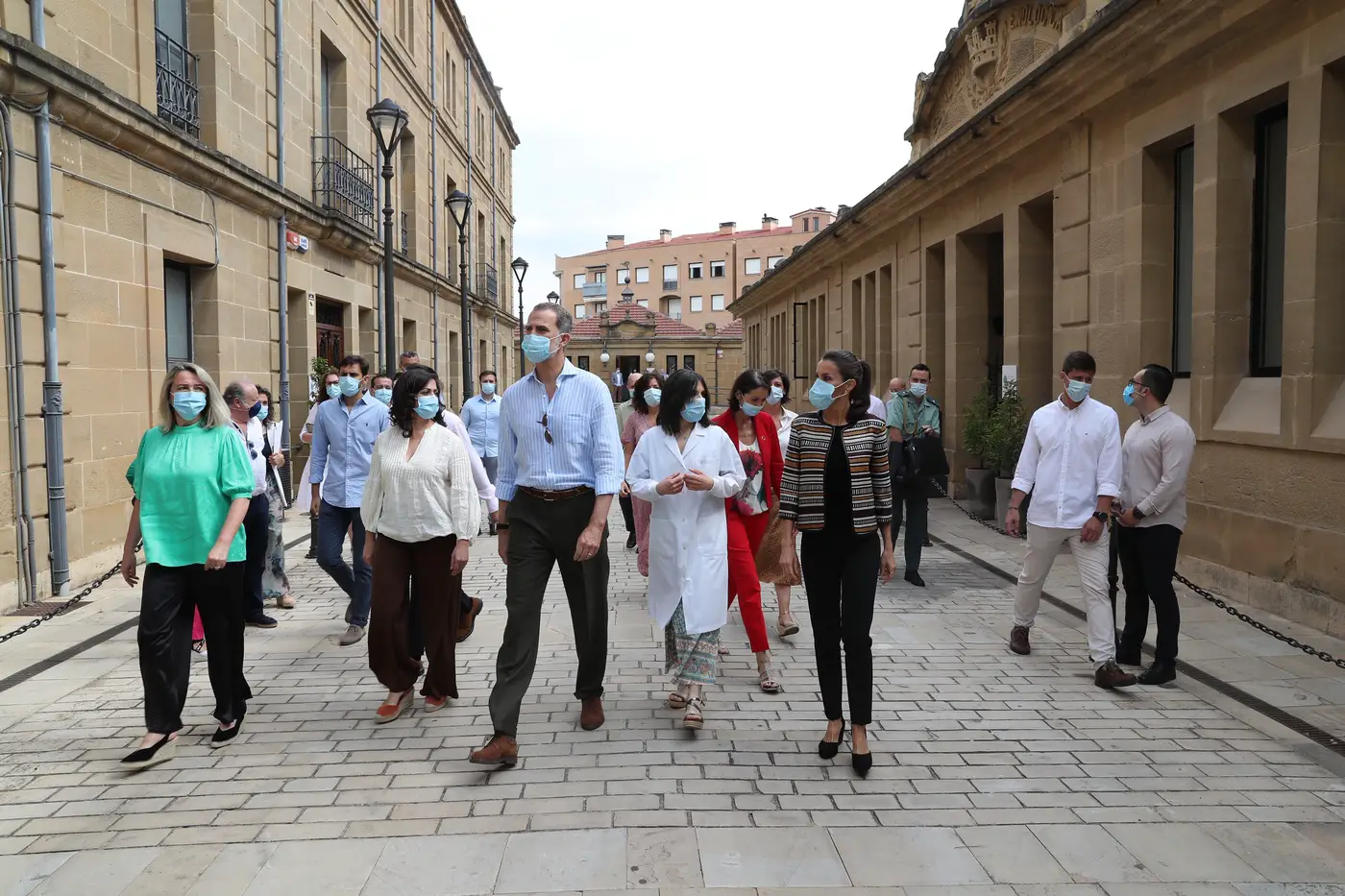
The next stop of the day was Bodegas López de Heredia de Haro, the wine cellars.
Felipe and Letizia toured the cellars and checked the wine barrels where most of the Haro wines are stored and talked to the staff working at the wine station. They toured the facilities of the oldest winery in the area Bodegas R. López de Heredia Viña Tondonia to learn about their development processes.
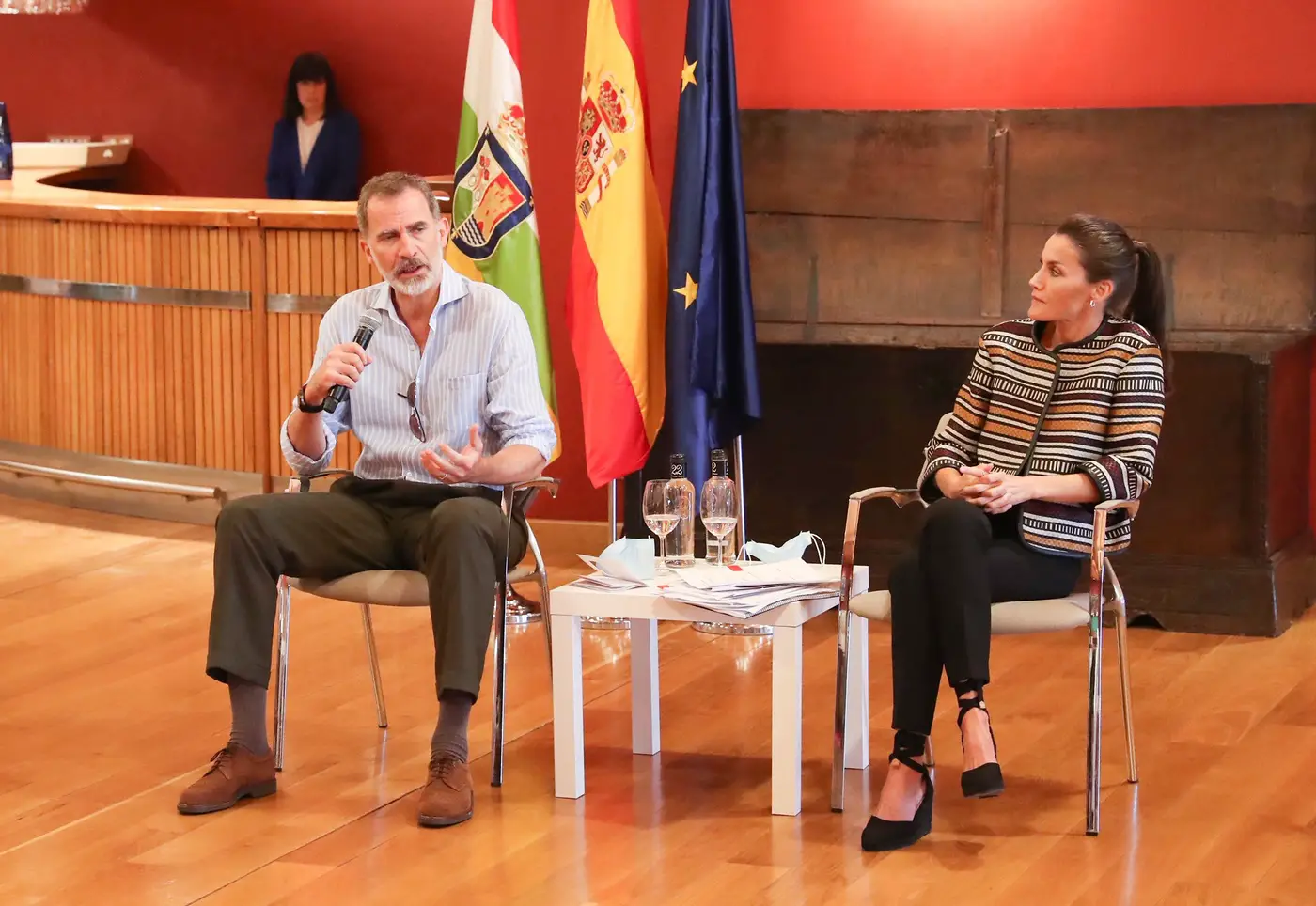
Next, Felipe and Letizia visited the facilities of Bodegas Rioja Alta where they held a meeting with the wine sector in The Minister of Agriculture, Livestock, Rural World, Territory and Population of the Government of La Rioja. Rafael Lopez de Heredia – Vina Tondonia is undoubtedly the most famous winery in Rioja. Vina Tondonia is also one of the oldest wineries in Rioja.

As expected, King Felipe and Queen Letizia received a very warm welcome from the public in the community.
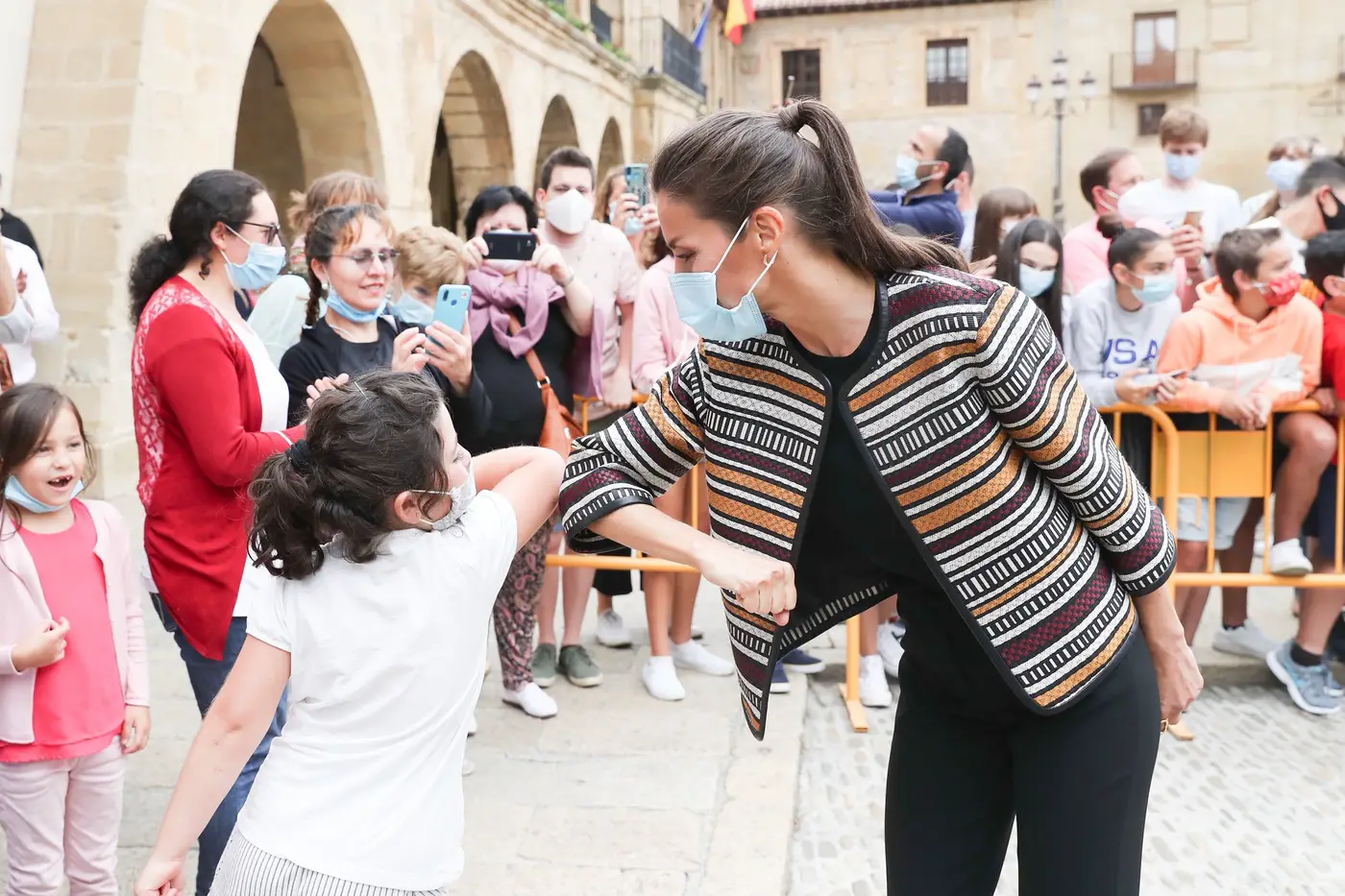
During the walkabout, Felipe and Letizia greeted the public members with elbow touch instead of handshakes.
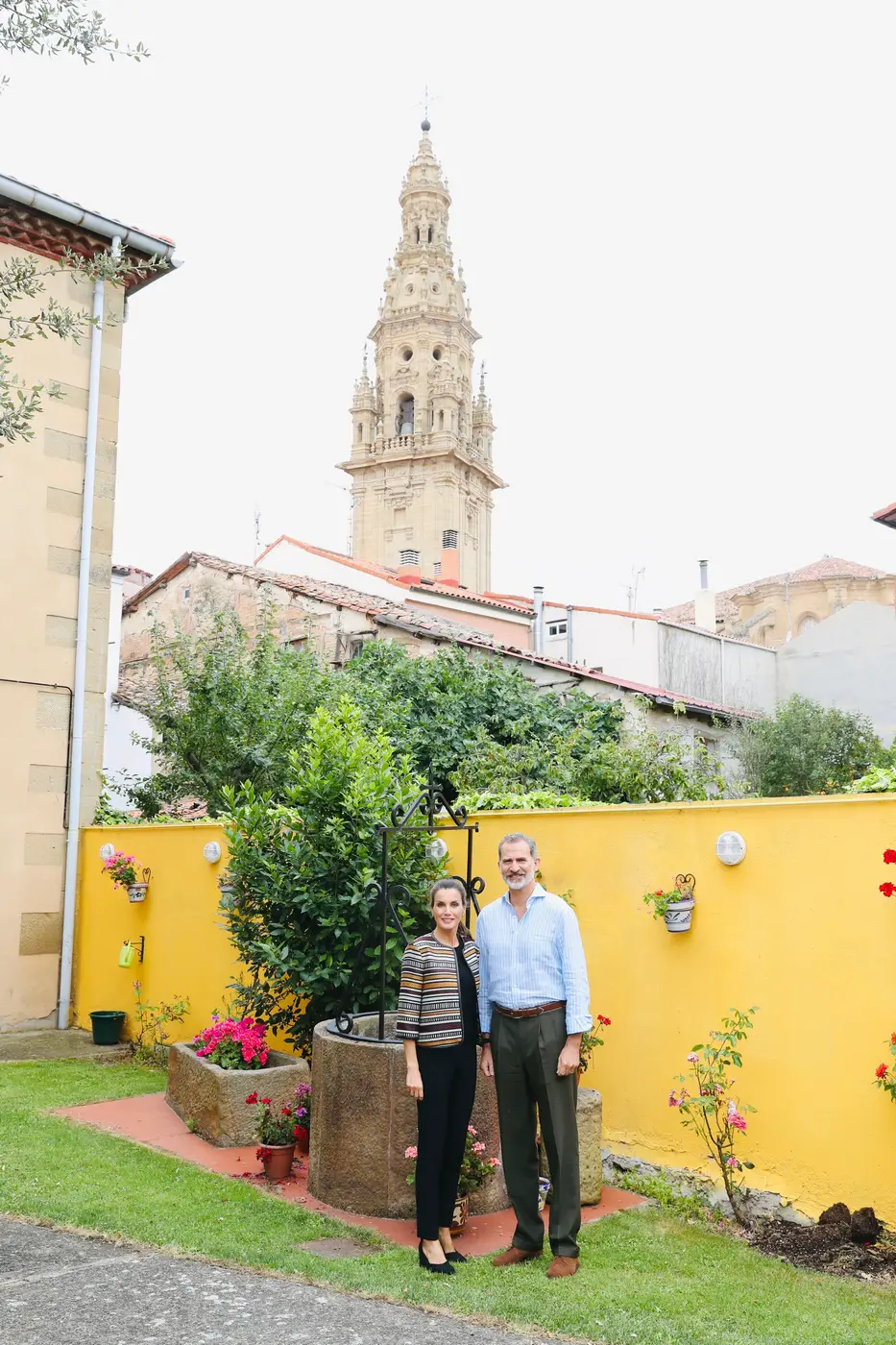
Next, King and Queen headed to Santo Domingo de la Calzada and toured the town that has the Camino de Santiago on the Jacobean route and its Pilgrim’s Hostel.
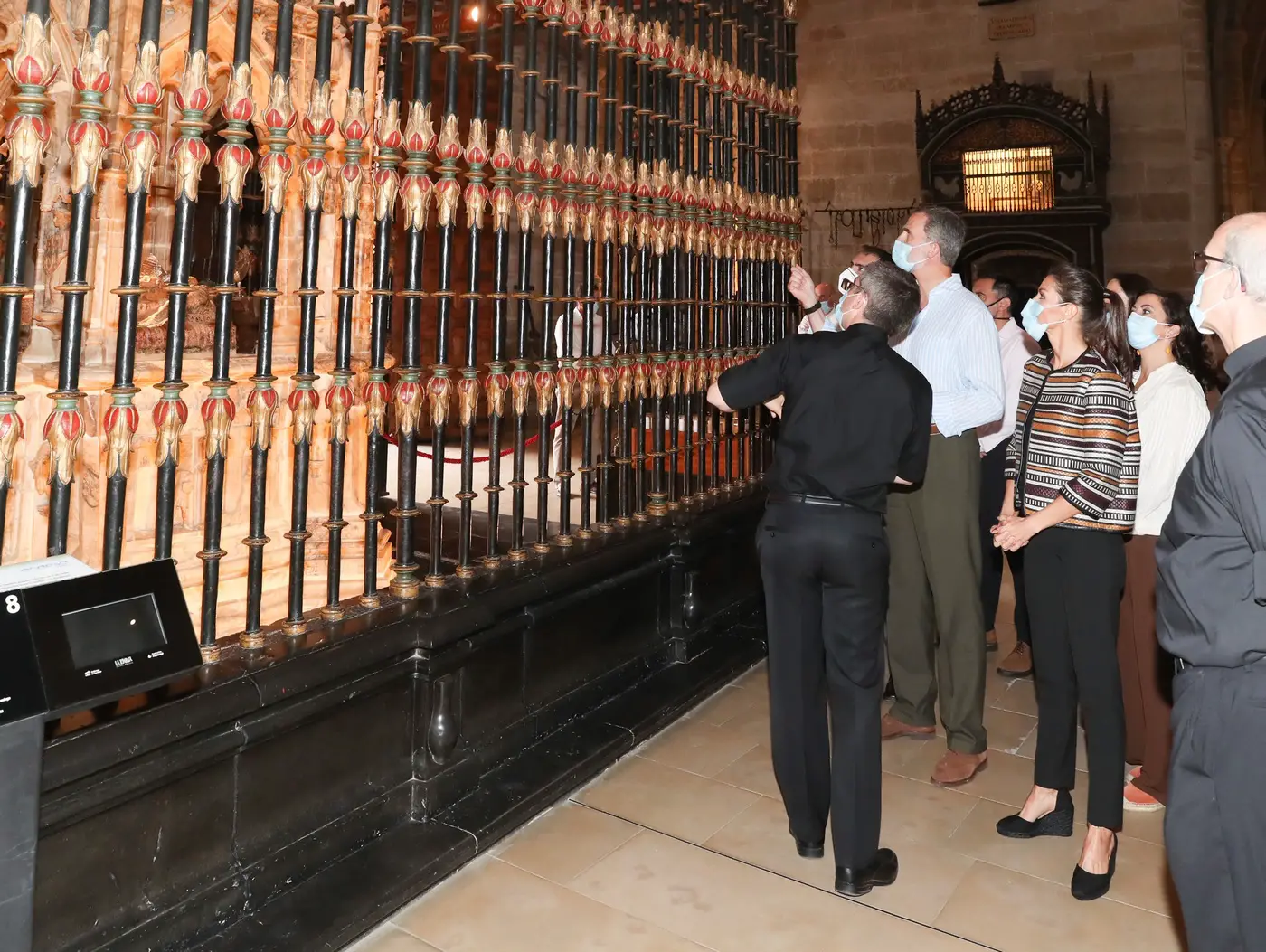
The day ended with the King and Queen visiting the Cathedral of Santo Domingo de la Calzada. Santo Domingo de la Calzada is an important enclave of the Camino de Santiago.
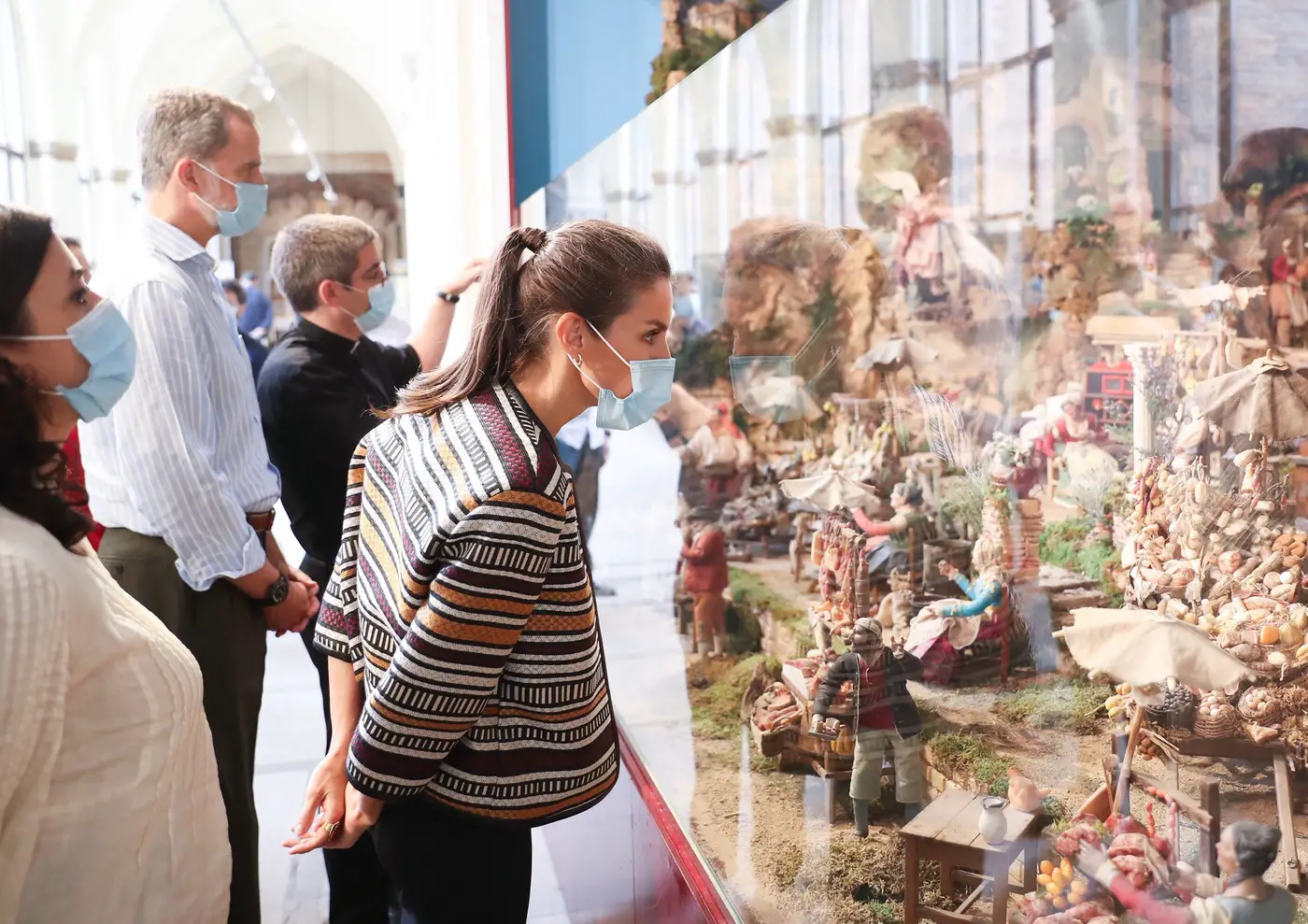
Linked to Santo Domingo —natural of Viloria— and its construction works on the Roman road, the city was born and grew from the Pilgrims Hospital that the Saint founded around the second half of the 12th century, in addition to a bridge over the river Oja to facilitate the passage of pilgrims. This hostelry fostered its growth and, later, the Jacobean route and became a key artistic, religious and economic factor in the community development.
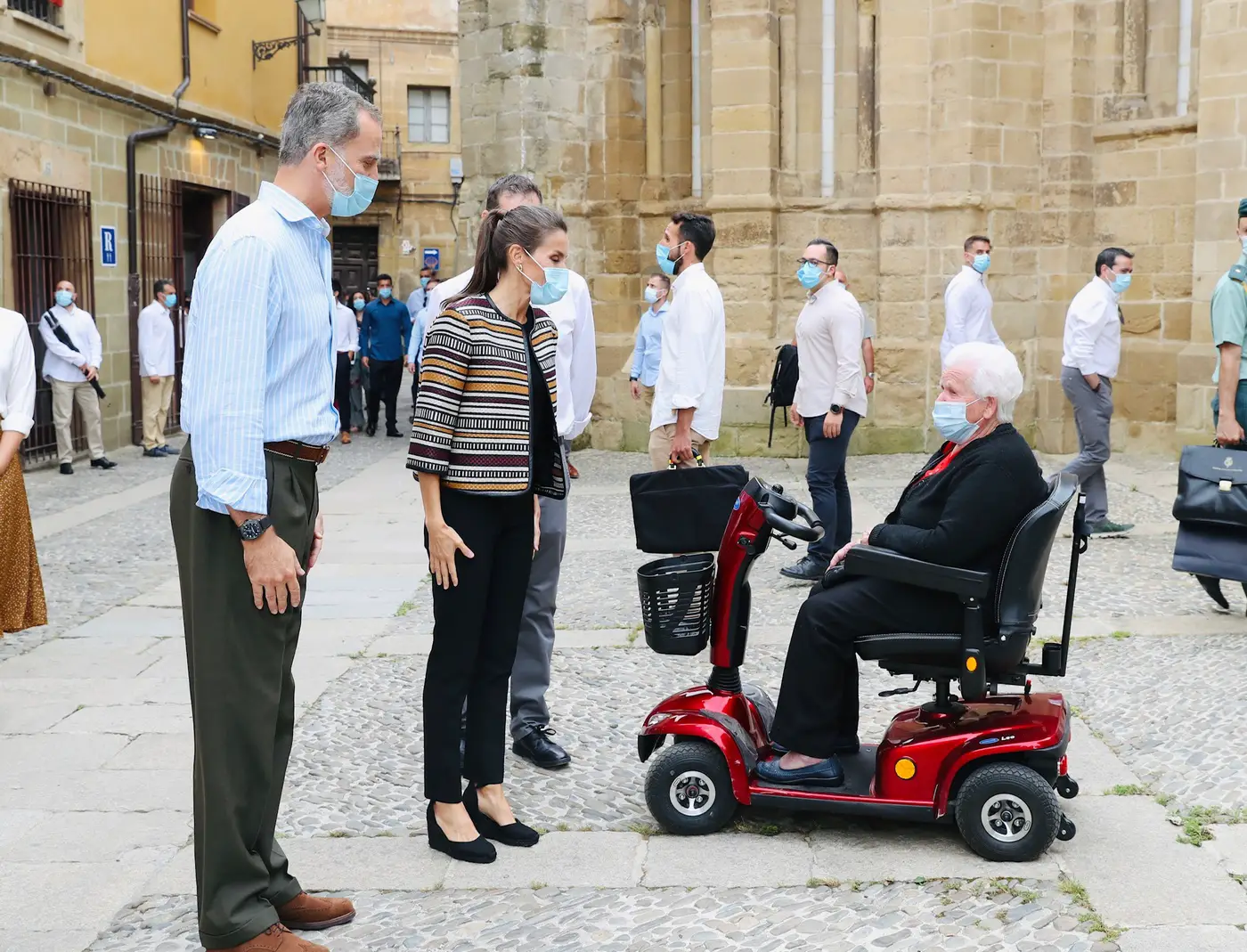
Felipe and Letizia talking to a local during the tour.
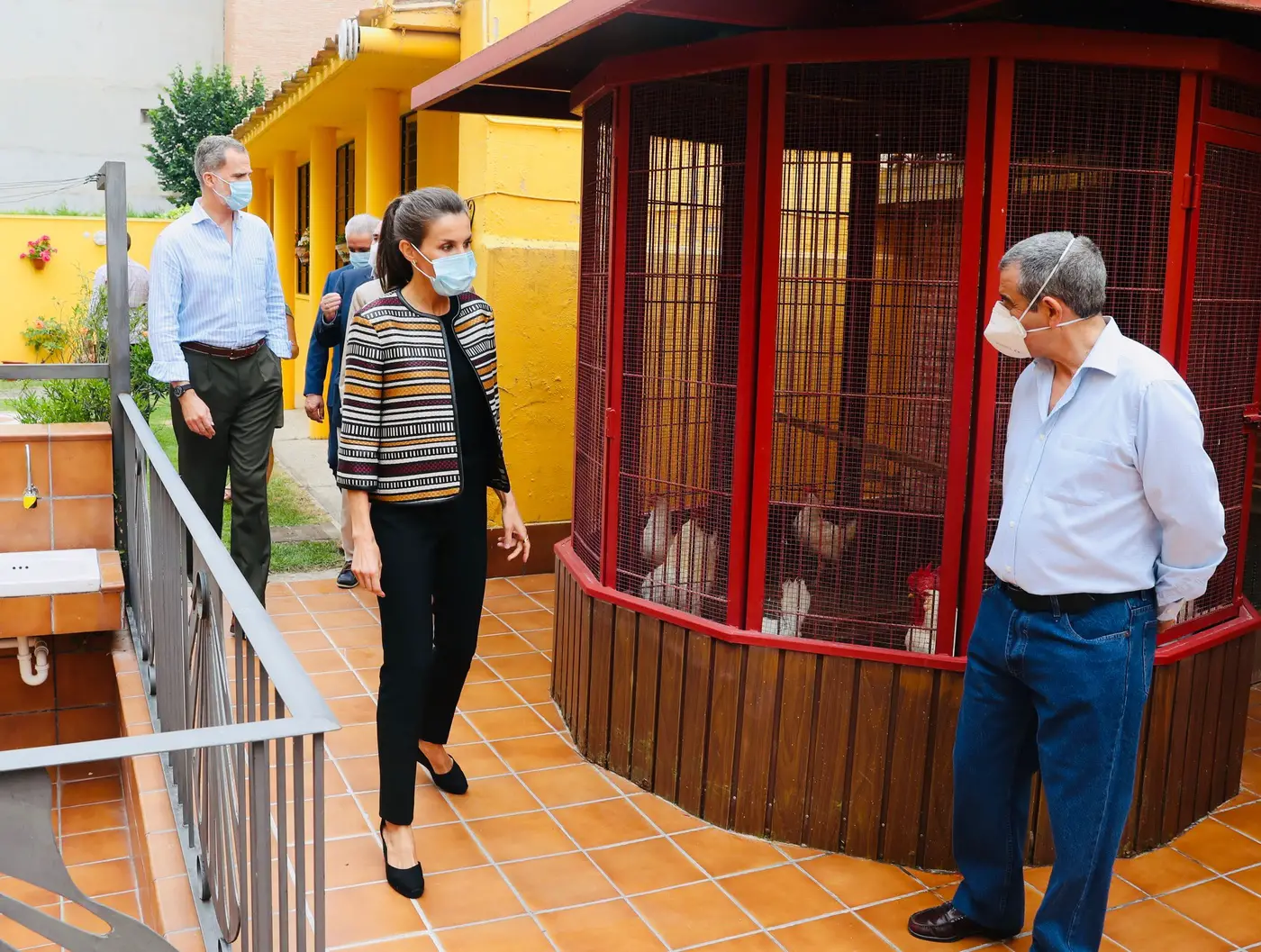
For the day, Queen Letizia of Spain brought back her old style. Letizia wore the Uterque Ethnic stripe jacket that she first debuted in October 2015.
The Jacquard loom jacket with ethnic-inspired stripes is made of cotton featuring a straight cut with leather trim detailing at the lapel and cuffs.
Letizia teamed up the jacket with a black top and trouser.
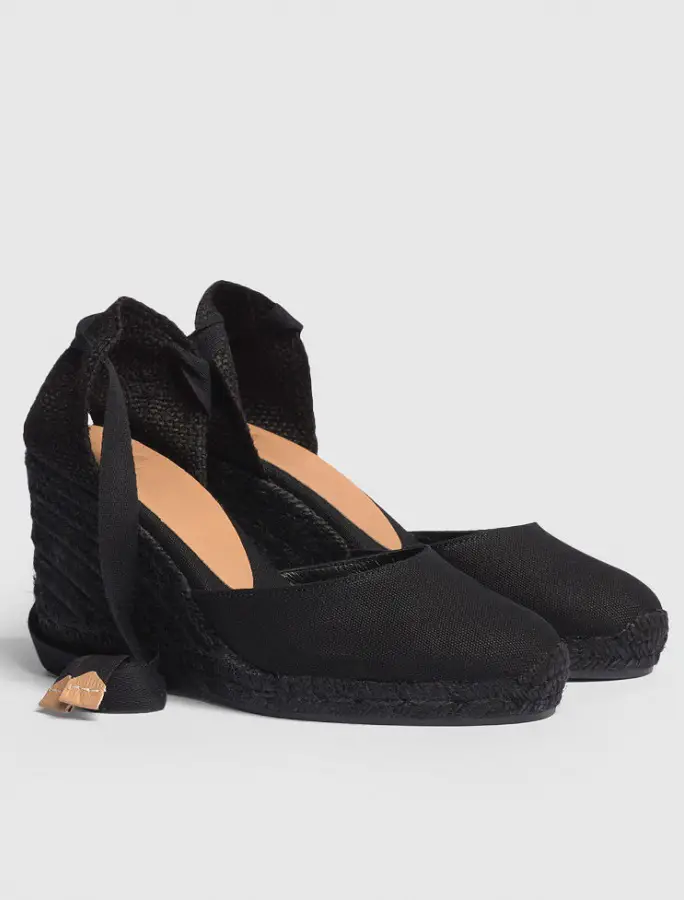
Queen wore her Castaner Carina wedges that she debuted during Aragon visit earlier this week.
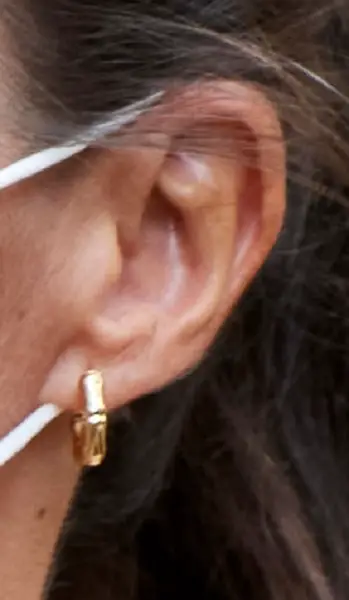
Letizia finished her outfit with gold bamboo earrings
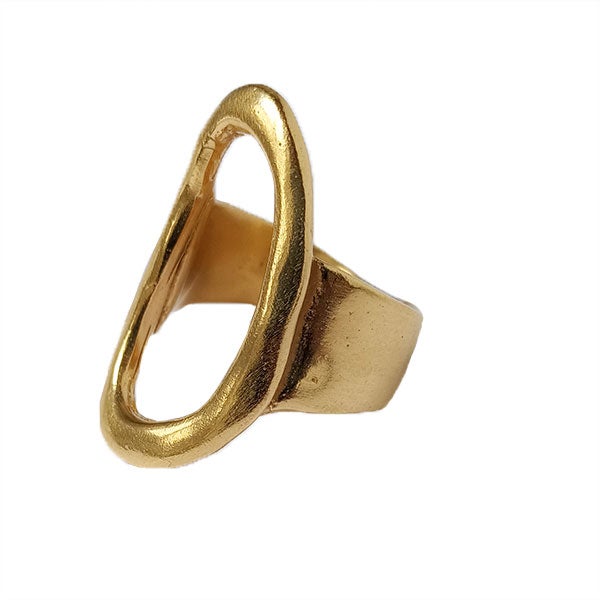
and her Karen Hallam ring.
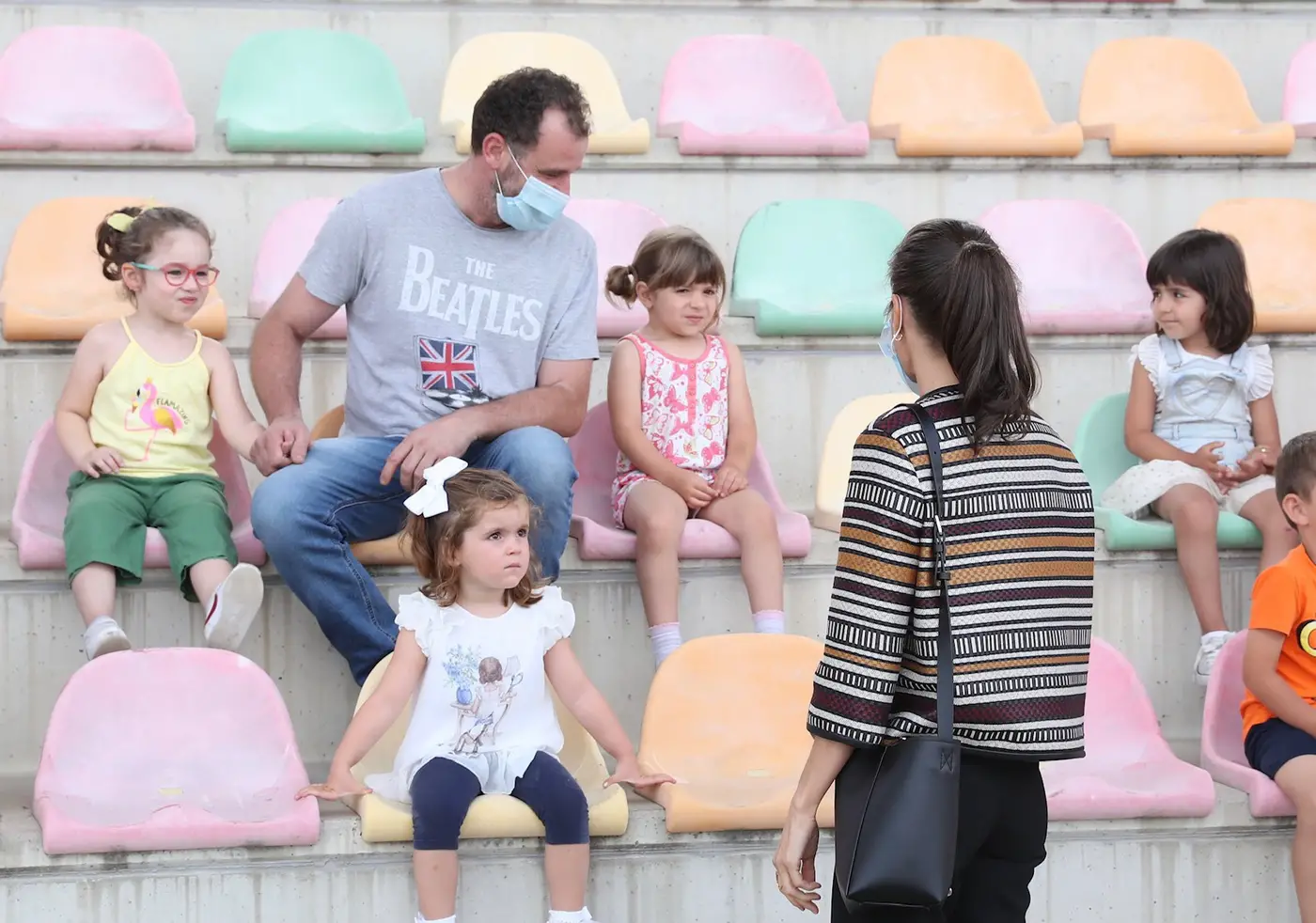
Queen was carrying a black bag that is still unidentified.

